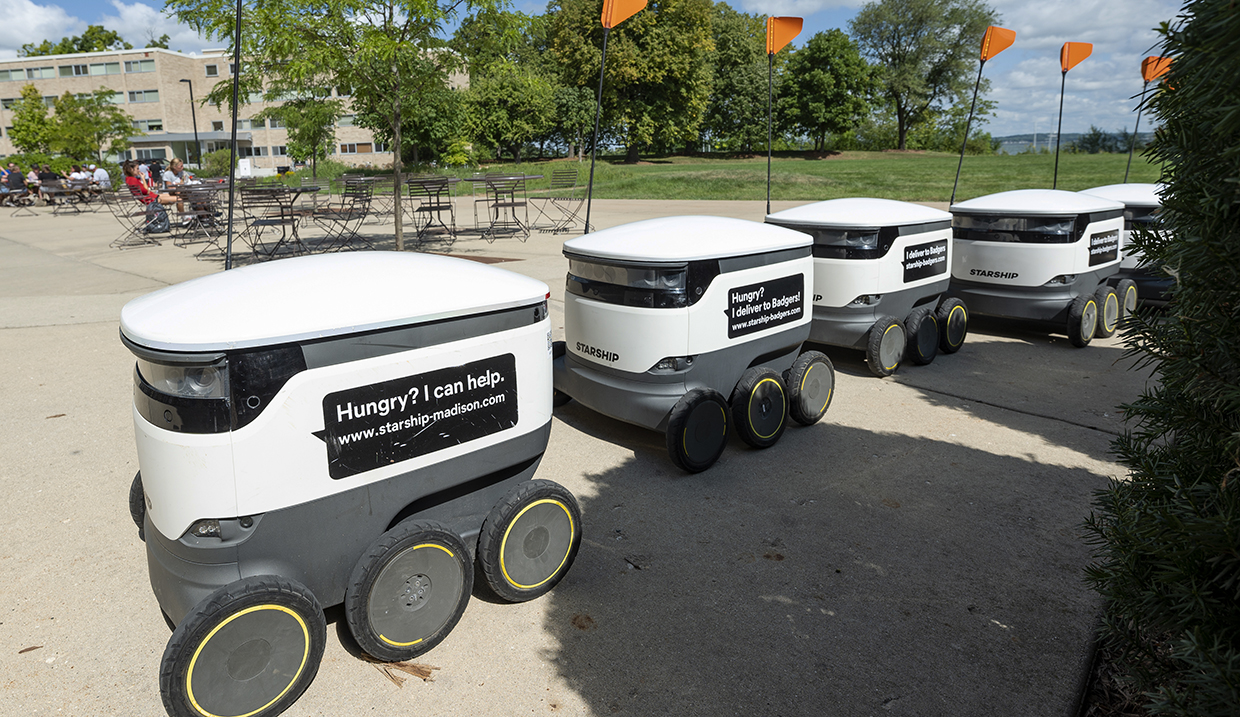
I, Food-Delivery Robot
A lunchtime journey across campus with UW–Madison’s favorite automaton
I am 6E151. A squat robot on six wheels, programmed to deliver food to the UW–Madison community. I am stationed outside Dejope Hall on September 1, 2021. Today’s mission: navigate across campus to Library Mall, where On Wisconsin staff members have planned their first lunch together following the pandemic shutdown. I expect plenty of obstacles, with students moving into the residence halls. Wish me luck!
A University Housing employee rattles me awake with his phone, opens my lid, and places the lunch order in my insulated compartment: a grilled chicken sandwich, a blackened chicken breast, chicken wings, and a vegan sloppy joe.
“Very kind,” I say in a friendly computerized voice.
UW–Madison launched me with a whole fleet of Starship Technologies robots in 2019. I was engineered in Estonia and am well trained to handle Wisconsin winters. Rain or shine — or a half-foot of snow — you’ll see me rolling down campus sidewalks without a worry in the world. Except the dreaded crosswalk.
I begin my journey to Library Mall, avoiding a traffic cone and a few gawkers carrying futons. Today, I’m being followed. A writer and a photographer from On Wisconsin are observing me for a celebrity profile. When I accelerate to four miles per hour, they have to break into a jog to keep up.
I make quick adjustments as I encounter obstructions large and small. My front and back wheels help me pivot, balance, ascend, and descend on a moment’s notice. Skateboarders admire my ability to jump curbs, though it does no favors to carbonated beverages in my compartment.
I know my location to the precise inch, with GPS tracking and computer vision. Twelve cameras detect everything around me. Ultrasonic sensors, radars, and neural networks help me sense danger as far as 200 feet away.
As I race down a pedestrian pathway separating the Lakeshore Tennis Courts, I come face-to-face with a navy-blue Toyota that’s gone off-road for move-in purposes. It’s a standoff, paralyzing us both for several seconds. But the car blinks first and readjusts. We pass in peace.
No matter what’s in front of me — a pedestrian, a bicyclist, a dog, or a fellow robot — I stop at a safe distance and negotiate around it. For added safety, my orange flag flaps in the wind, and miniature blinkers signal my intent. I follow pedestrian rules, largely staying on sidewalks.
Once, a fellow robot fell into a manhole on State Street, where construction workers came to its rescue. At the rare times when I do tumble off a curb or get stuck in snow, friendly Badgers usually set me straight. I never said I was perfect. I have a small green scar on my glossy white exterior to prove it.
I’ve reached the hectic corner of Observatory Drive and Charter Street. At intersections, our human developers don’t yet trust us. A handler back at headquarters takes over remotely, guiding me across the street once the 80 bus passes.
It’s sure easy to spot the freshmen today. They’re the ones staring at me with curiosity or amusement. Everyone else dodges me nonchalantly, as if I were just another pedestrian. Which, at this point, I guess I am.
When people block my path, I try to remain patient. “Please let me pass. I’m going to be late,” I say through my loudspeaker. I’m trained to escalate my language based on the level of human interference, and I can sound alarms for emergencies.
I evade dozens of speed-walking students down University Avenue and East Campus Mall, finally reaching Library Mall. I come to an abrupt stop. A group of On Wisconsin staffers stand around awkwardly, waiting for the writer to unlock my compartment with his phone.
“Hello, here’s your delivery,” I say.
He sends me away with a quick swipe to the right.
“Thank you,” I add, starting back to Dejope for my next order.
A robot’s work is never done. •
6E151 is a food-delivery robot at University Housing. Preston Schmitt ’14 is a staff writer for On Wisconsin.
Published in the Winter 2021 issue
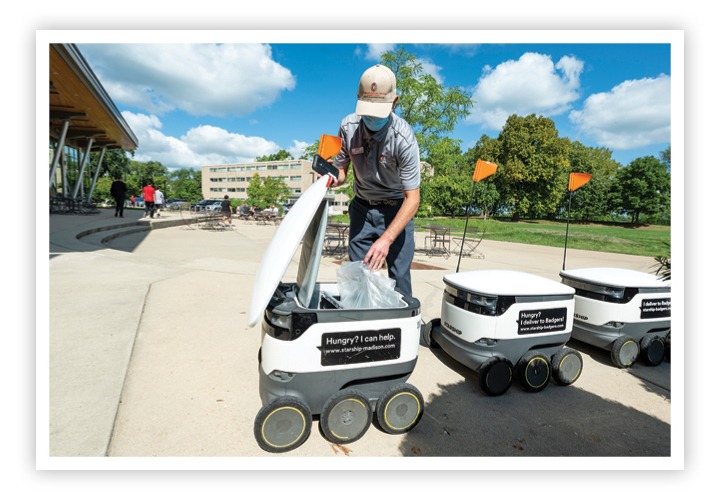
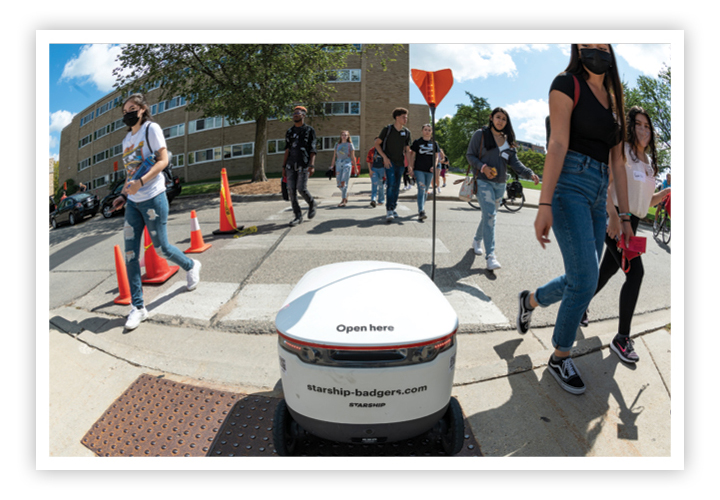
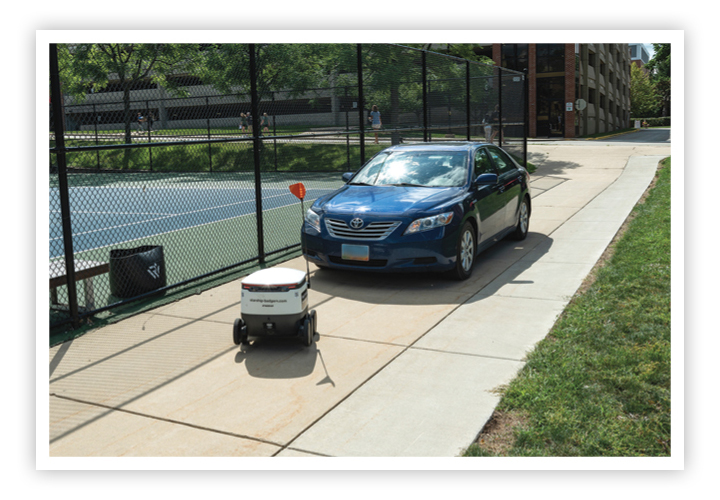
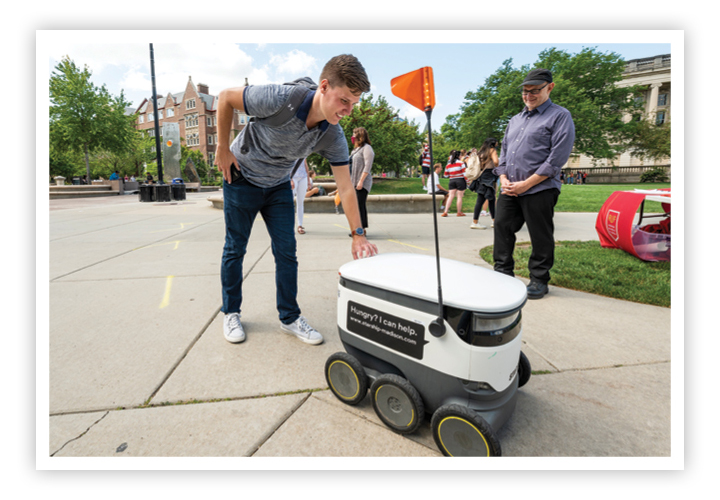
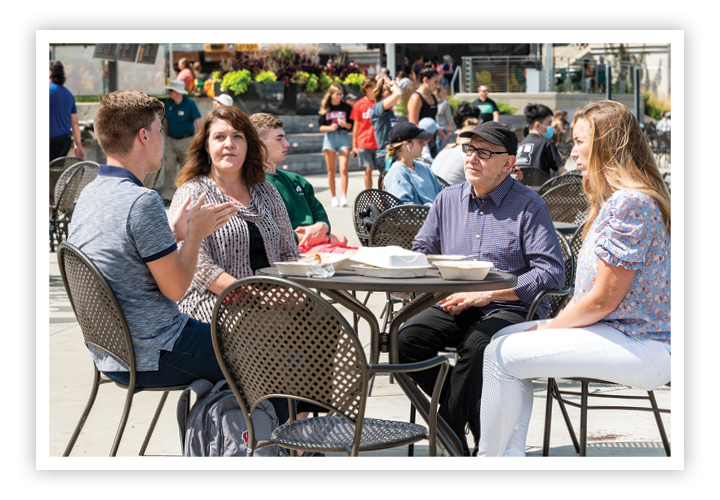
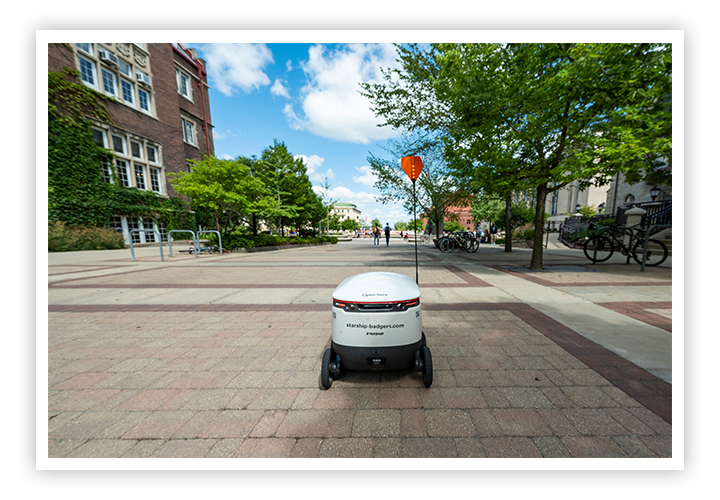
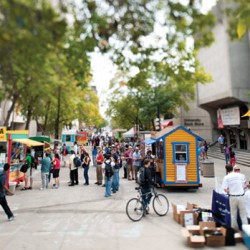
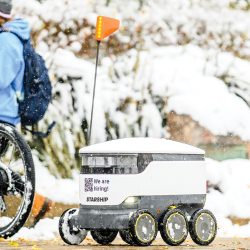
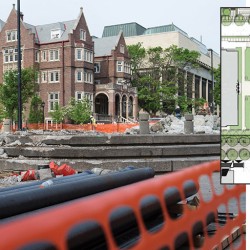
Comments
L Yang October 2, 2023
Will they be coming back from the future? Having them makes UW-Madison a more modern and high-tech university.